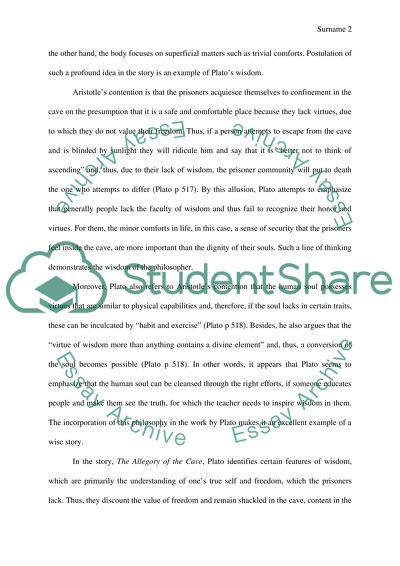The Portrayal of Wisdom in Platos Allegory of the Cave Article. Retrieved from https://studentshare.org/philosophy/1604546-your-definition-of-wisdom-and-how-is-that-can-be-connected-to-allegory-the-cave-by-macvalley-and-where-do-you-see-the-wisdom-in-that-story
The Portrayal of Wisdom in Platos Allegory of the Cave Article. https://studentshare.org/philosophy/1604546-your-definition-of-wisdom-and-how-is-that-can-be-connected-to-allegory-the-cave-by-macvalley-and-where-do-you-see-the-wisdom-in-that-story.


